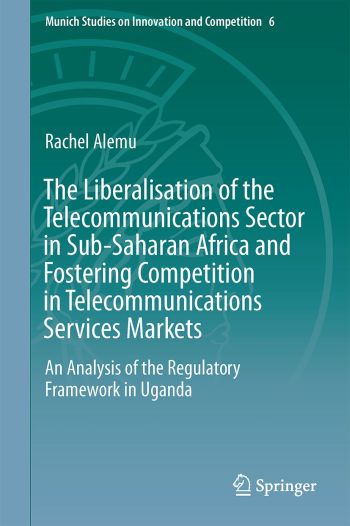We are now closed for the Christmas and New Year period, returning on Monday 5th January 2026. Orders placed during this time will be processed upon our return on 5th January.

This study investigates whether the existing regulatory framework governing the telecommunications sector in countries in Sub-Saharan Africa effectively deals with emerging competition-related concerns in the liberalised sector.
Using Uganda as a case study, it analyses the relevant provisions of the law governing competition in the telecommunications sector, and presents three key findings: Firstly, while there is comprehensive legislation on interconnection and spectrum management, inefficient enforcement of the legislation has perpetuated concerns surrounding spectrum scarcity and interconnection. Secondly, the legislative framework governing anti-competitive behaviour, though in line with the established principles of competition law, is not sufficient. Specifically, the framework is not equipped to govern the conduct of multinational telecommunications groups that have a strong presence in the telecommunications sector.
Major factors hampering efficient competition regulation include Uganda's sole reliance on sector-specific competition rules, restricted available remedies, and a regulator with limited experience of enforcing competition legislation. The weaknesses in the framework strongly suggest the need to adopt an economy-wide competition law. Lastly, wireless technology is the main means through which the population in Uganda accesses telecommunications services. Greater emphasis should be placed on regulating conduct in the wireless communications markets.